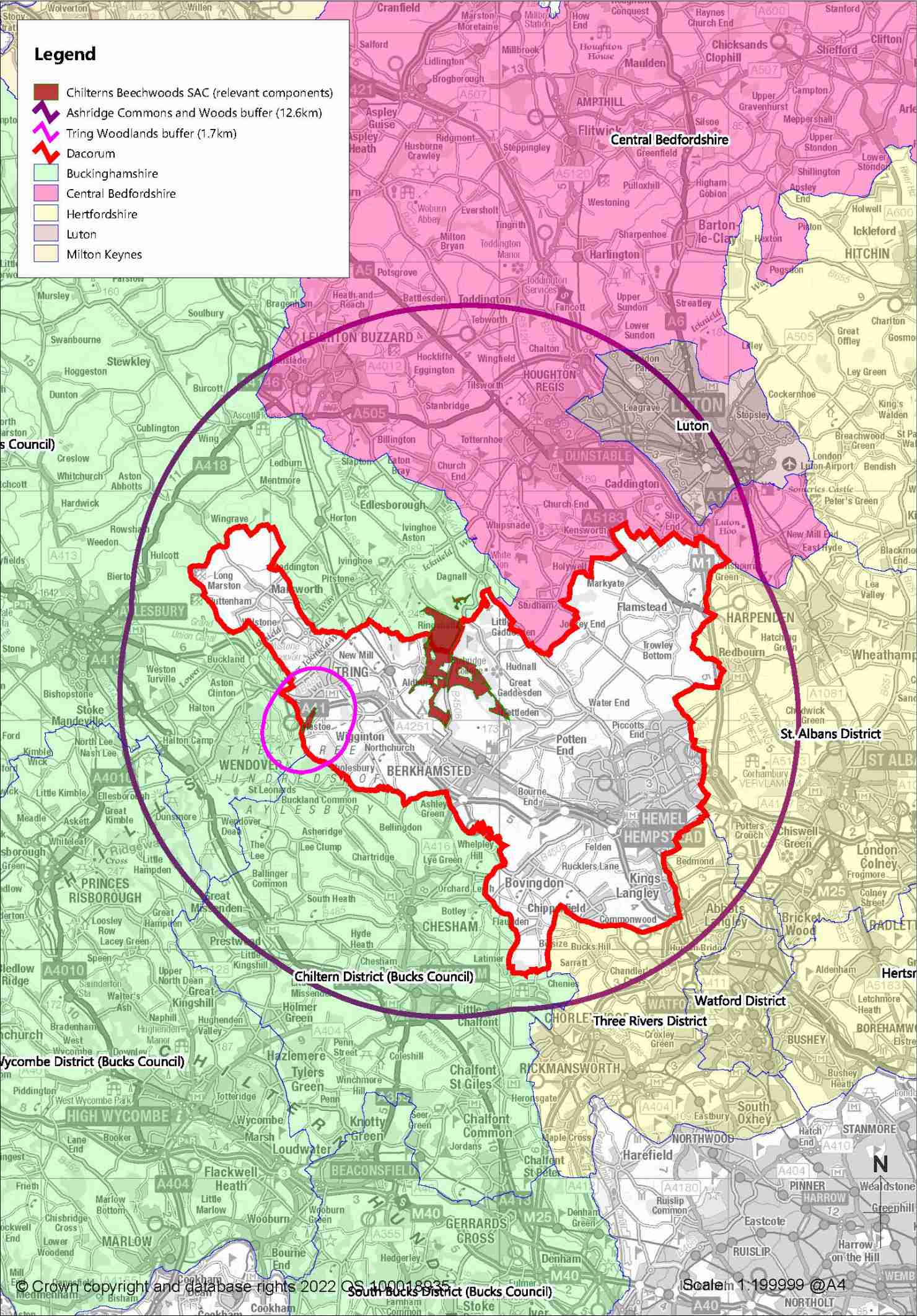Natural England introduces a 12.6km zone of influence around Chiltern Beechwoods SAC where mitigation will be required for residential development
On 14 March 2022, Natural England advised affected LPAs of a 12.6km Zone of influence (ZOI) now in place around Chiltern Beechwoods SAC where mitigation for new residential development will be required. This is applicable to the Ashridge Commons and Woods SSSI component while the Tring Woodlands SSSI component is subject to a 1.7km ZOI, albeit mitigation will be required for proposals within 1.7km of this SSSI. In addition, a 500m exclusion zone for residential development is present around the SAC. Affected local authorities are Dacorum, St Albans, Central Bedfordshire, Buckinghamshire, Luton and Three Rivers, albeit the majority of visitors emanate from Buckinghamshire (Aylesbury Vale and Chilterns Districts), Central Bedfordshire, Dacorum and St Albans with these authorities charged with developing a strategic solution.
Natural England’s advice has arisen out of visitor studies undertaken for Dacorum Council. The evidence base has been assembled using well established methods of identifying whether significant effects are present as per the process applied to other European sites where visitor pressure is a similar issue. Key causative effects from high footfall are identified and centre on:
- Damage: encompassing trampling and vegetation wear, soil compaction and erosion;
- Contamination: including nutrient enrichment (e.g. dog fouling), litter, invasive species;
- Fire: increased incidence and risk of fire;
- Other: all other impacts, including harvesting and activities associated with site management.
Mitigation is advised in the form of Suitable Alternative Natural Greenspace (SANG) and Strategic Access Management and Monitoring (SAMM), with the latter being the primary preferred method of mitigation. The need for a strategic solution is acknowledged, but this will have at least a 6 month lead time. In the meantime all developments will need to pause, or alternatively carry out Habitat Regulations Assessments (HRAs) and bring forward bespoke mitigation. However, reference to a series of frequently asked questions (FAQs) issued by Dacorum suggests they will not be keen to accept bespoke mitigation and their default expectation is that developments await a strategic solution. It is unclear whether Natural England or other Local Planning Authorities will be more receptive to bespoke mitigation proposals in the interim.
These restrictions affect a large part of the region north of London which is currently delivering a substantial number of much needed new dwellings. Of particular concern is the advice from Dacorum that the need for mitigation will apply to reserved matters applications and the discharge of conditions. We anticipate that these points may be subject to legal challenge by interested parties.
Follow Aspect Ecology on LinkedIn for all our latest news LinkedIn Page


